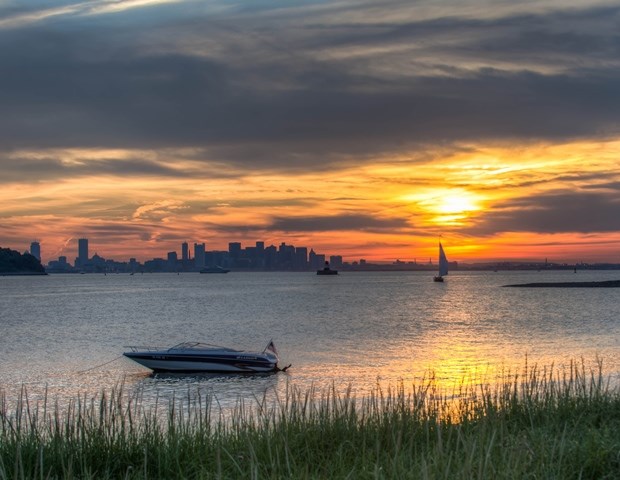Last updated: December 5, 2019
Article
Boston Harbor Islands

Boston Harbor Islands was a new kind of partnership park when it was established in 1996—combining private and public funding and shared management. Officially designated a national recreation area, it is known as “a national park area” to respect American Indians who consider the islands sacred ground. Park partners work to broaden public appreciation for the full range of the park’s intrinsic values, not just its recreation assets. Indeed, the 34 islands that make up the national park area offer an exceptional assemblage of natural, geologic, archeological, historic, and cultural features, as well as 35 miles of relatively undeveloped shoreline—all at the front door of New England’s most populous city.
This national park area is managed by a variety of government, nonprofit, and for-profit entities through the 13-member Boston Harbor Islands Partnership, appointed by the Secretary of the Interior. The National Park Service coordinates the Partnership and an advisory council, develops overarching programs, and helps the park meet NPS standards.
Among the unusual features in the enabling legislation is the requirement of a three-to-one match of non-federal to federal funds. Congress designated a private, nonprofit organization, the Boston Harbor Island Alliance, as a partner with specific responsibility for raising and generating money from the private sector.
While various management partners focus on their specific areas in the park, the National Park Service has a more holistic view. This is especially evident in science and research initiatives for the island system as a whole. The park is working with the University of Massachusetts-Boston to establish the Boston Harbor Islands Center on the UMass campus, which will coordinate and be a clearinghouse for research projects, curriculum development, and stewardship programs. Similarly, NPS works with Harvard University to engage university staff, students, and community volunteers in a biodiversity inventory of island resources. Park staff participate in the Boston Harbor Habitat Coalition, which promotes conservation of marine and terrestrial habitats in the area.
The waters surrounding Boston Harbor Islands were once one of the most polluted harbors in the nation. Today, the harbor’s natural systems have rebounded, and the islands are a destination for swimming, boating, fishing, and other recreation. NPS has played an important part in the transformation.
